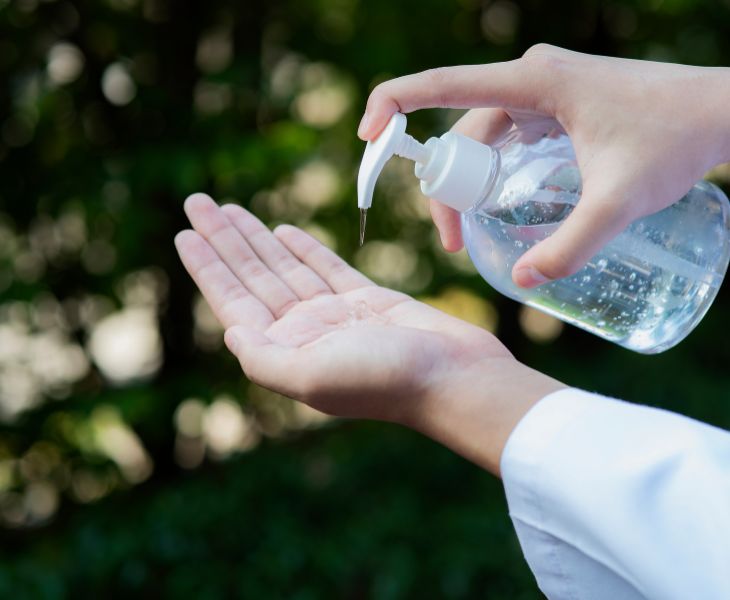As the Covid-19 pandemic spread, hand sanitiser became a must-have personal item, rather than something you occasionally came into contact with at a medical facility, in a first-aid kit, or via your friend with a personal hygiene fixation. Despite Covid fears abating, hand sanitiser nonetheless remains an important household item, helping to reduce the harmful germs and bacteria that can easily spread to your hands to your eyes, nose, and mouth, making you more susceptible to infection.
There are many cases of people having bought a bottle of hand sanitiser at the start of 2020, then forgetting about it. If you’re someone who has fished out a bottle of hand sanitiser from the recesses of your bag you might be asking yourself whether it’s still okay to use. Even if you’ve never heard of hand sanitiser going off, many bottles do actually show a use-by-date —so how do we determine whether a bottle still does the job? For that, we need to understand what makes hand sanitiser effective and what variables affect it.
What are the key ingredients in hand sanitiser?
As hand sanitiser is a medical product, its ingredients and packaging are dictated by the Australian Therapeutic Goods Administration (TGA). According to the TGA’s website, the following ingredients only are accepted:
- isopropyl alcohol 75% v/v (pharmacopoeial grade) in an aqueous solution
- purified water
- glycerol 1.45% v/v (pharmacopoeial grade)
- hydrogen peroxide 0.125% v/v (pharmacopoeial grade)
As we can see, the key ingredient is alcohol, which is responsible for killing germs. In Australia, 75% is the standard, but other countries’ medical authorities have different rules and regulations. In America, for example, the Food and Drug Administration (FDA), only provides the recommendation that consumers use hand sanitiser that has over 60% alcohol concentration, containing ethanol or isopropyl alcohol.
When does hand sanitiser expire?
According to Karen Dobos, a Research Professor from Colorado State University who is quoted on the website Health, the concentration of alcohol and hydrogen peroxide, two of the key ingredients in hand sanitiser, decreases over time—as alcohol evaporates on contact with air. Storing sanitiser with the lid on in a cool dry place will help it last longer, but plastic bottles are nevertheless not airtight, so evaporation will continue to occur.
Hand sanitiser use-by date
As we’ve established, alcohol is responsible for killing germs, which is why a lower concentration of alcohol leads to lower effectiveness. In sum, there is no strict hand sanitiser expiry date, which is why the TGA does not require it to be printed on bottles in Australia; but if there is one included, it should be no more than three years after the date of manufacture (which does need to be included on the bottle).
Where to store hand sanitiser
The three-year hand sanitiser use–by date guideline is calculated based on best practices for storage. As the website Medical News Today explains, a bottle of hand sanitiser’s shelf life depends on storage temperatures. A cool ventilated area below 30°C is recommended on most products’ back labels—meaning on your desk at work is fine, but leaving your hand sanitiser spray or gel in a hot car will cause the alcohol to evaporate faster.
Shop from a range of hand sanitisers with COS
Working with Australian Government departments, healthcare facilities, enterprises, and other private sector businesses, we have a well-stocked range of effective and approved hand sanitiser bottles and hand sanitiser dispensers for both personal and bulk use, including Power Fresh (Australian-made and sourced from local providers) and Muru (First Nations) items which are exclusive to COS.

